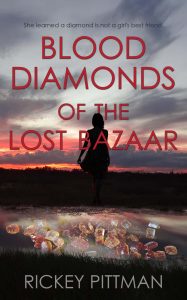There seems to be no end to the protests regarding any attempt to present anything positive about American history and the people who had roles in that history. The WOK mindset finds wrong everywhere through their nitpicking spins on the facts, including the recently erected statue of Tomochichi in Atlanta. In the Monroe Newstarr, an article by Michael Warren entitled “Atlanta statue dismays Muskogee (Creek),” Warren says some tribal historians of the Creek have issues regarding the statue. Those opposed to the statue claim:
- It’s disrespectful.
- It’s incredibly inappropriate.
- It presents an offensive and historically conception of Native Americans as primitive savages.
- It glorifies a heavily mythologized figure, whom the Muskogee say initiated a century of ethnic cleansing. The critics claim Atlanta is “erasing them again, acting as if they vanished without a fight after handing over their land and heritage
- The article finds fault in Tomochichi supplying slaves to the British and promising to return any escaped negro slaves,
Here’s my general observations about this article: Yes, the statue shows Tomochichi in a loincloth instead of buckskin breeches and long white shirt. Yes, he probably did generally wear western style clothes (as did the Seminole), but the loincloth is also accurate as Creek warriors would fight nearly (or often totally) naked when in battle or hunting. The statue honors a Creek leader who basically is responsible for founding the city of Savannah by giving the British permission to build there. He did not give ALL the Creek lands away.
He also did not initiate ethnic cleansing. If anything really started the Creek (Red Stick) war, it was the Fort Mims Massacre when 500 settlers (many Southern Creek among them) were attacked and horribly killed and mutilated by hundreds of Northern Creek. The Creek wars are proof that the nation did resist. Besides, much of the Creek nation had intermarried with the Scots and Irish, and they were sent also on the Trail of Tears.
About slavery: The Creek nation, just like other Native American tribes, as owned and took slaves, enslaving both blacks and Native Americans. There was no innocent party on the topic of slavery.
No statue can present all facts (whether good or bad) of a person. Statues can make the viewer think and research who the statue represents and their place in history. Would it be better to not know anything about Tomochichi? Whether tribal historians like it or not, Tomochichi is a part of Creek history. Are there other Creek leaders who should be represented as well or instead of Tomochichi?
Creek history, like that of other Native American tribes, is a complicated, and unfortunately often sad story. I encourage you to read and research for yourself. I’d suggest you visit the Georgia Historical Society page on Tomochichi: https://georgiahistory.com/education-outreach/online-exhibits/featured-historical-figures/tomochichi/

 My new novel will be released this year. To give my readers and writer friends a little taste of some discoveries they will make, I’ve included a list of the epigraphs I’ve used to set a tone or to encourage thinking or personal memories. If you read my other novels and short stories, you already know that I am fond of using epigraphs. Most are directly under the chapter number, but a few of the Krio proverbs are also in the text as quoted by characters. I hope you will find the Krio proverbs as delightful as I did. The Krio language is English based and is Sierra Leone’s de facto national language. I encourage you to do an online search of Krio. At the end of my list of epigraphs, is a short video that will teach the basics of speaking Krio:
My new novel will be released this year. To give my readers and writer friends a little taste of some discoveries they will make, I’ve included a list of the epigraphs I’ve used to set a tone or to encourage thinking or personal memories. If you read my other novels and short stories, you already know that I am fond of using epigraphs. Most are directly under the chapter number, but a few of the Krio proverbs are also in the text as quoted by characters. I hope you will find the Krio proverbs as delightful as I did. The Krio language is English based and is Sierra Leone’s de facto national language. I encourage you to do an online search of Krio. At the end of my list of epigraphs, is a short video that will teach the basics of speaking Krio: